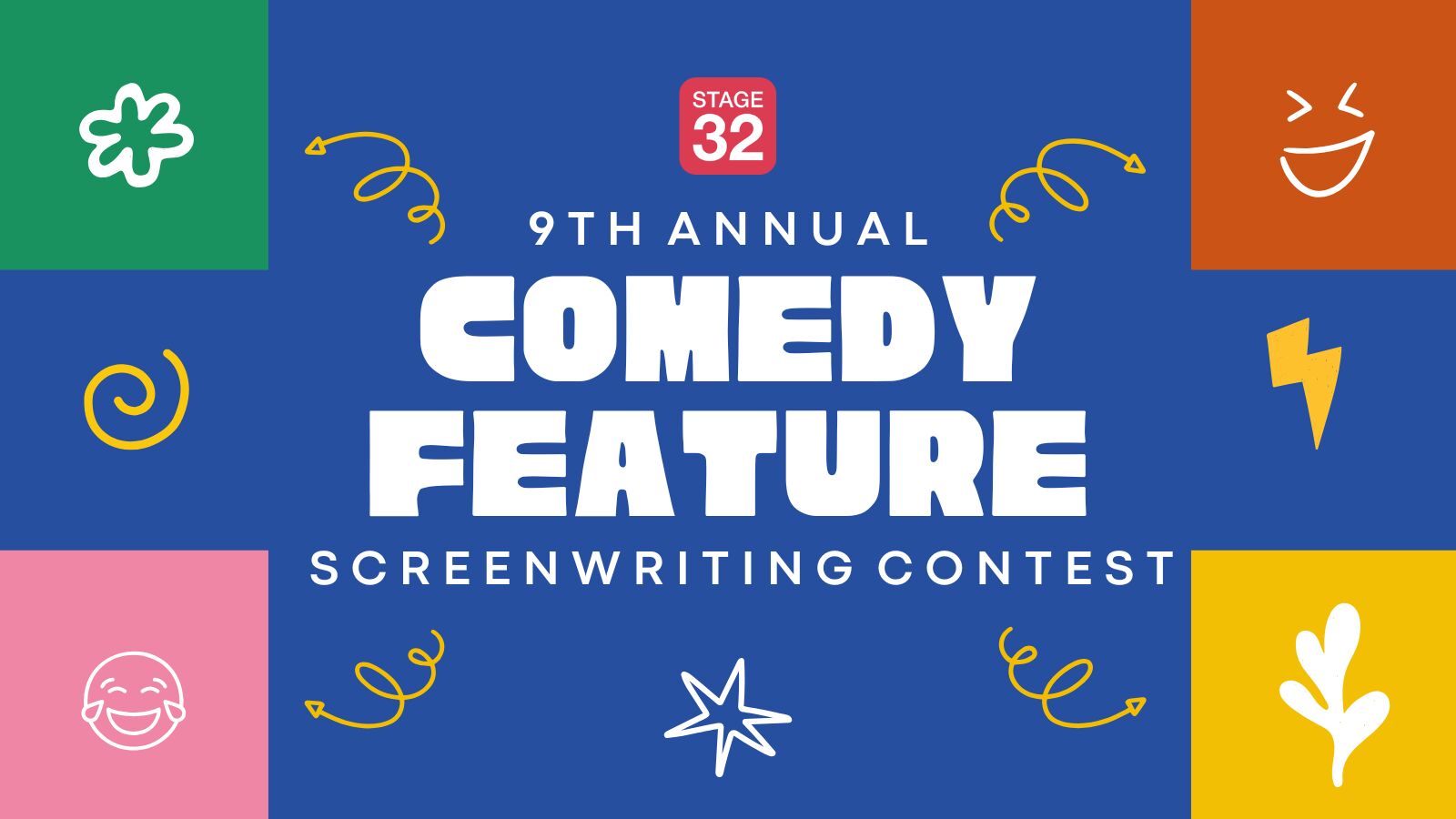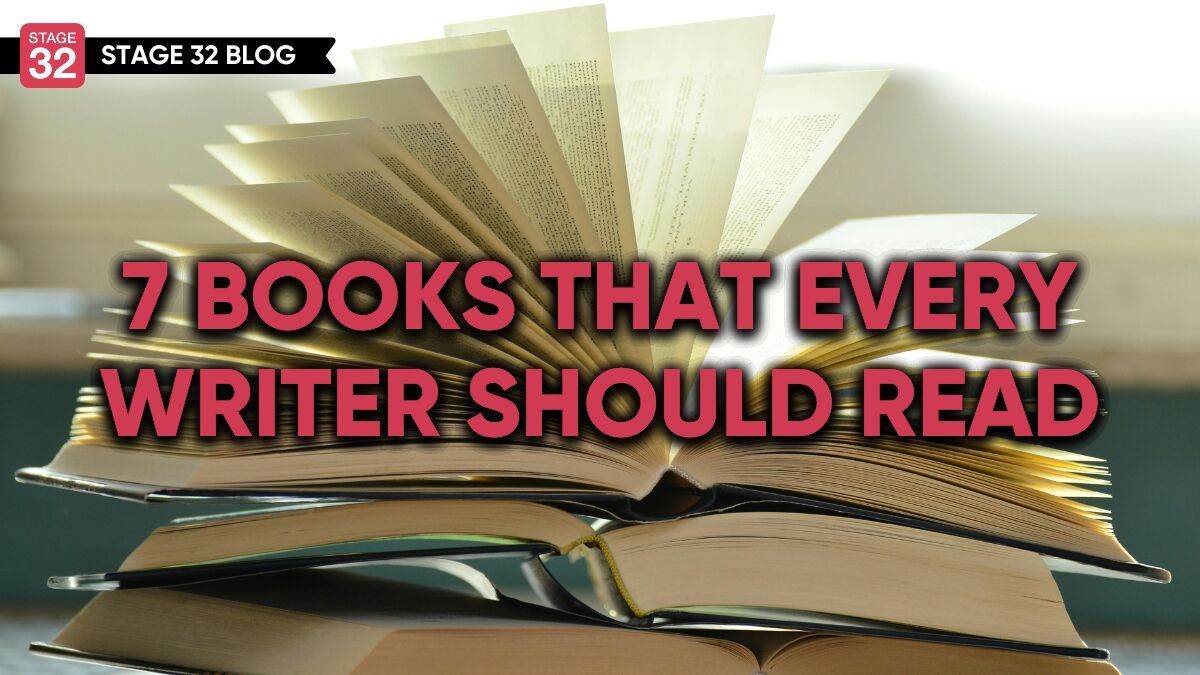7 Books That Every Writer Should Read
Cinderella is my favorite Disney Princess. But I have always identified with Belle: growing up, my nose was always stuck in a book. I would come home from school and public libraries with piles to read.
As a child, I roamed the shelves of the fiction section barely giving time to nonfiction. As an adult, I’ve realized the value of the genre. Taking a look at a bookstore, you realize just how much of the store is taken up with nonfiction. Everything from reference books to cookbooks to memoirs to history books. And that’s just touching the surface. I worked at Barnes & Noble for three years and while I had an appreciation for nonfiction then, it simply grew over that time.
When I realized that what I wanted to do for a living was write, I found material on what that meant. Sure, I’d been creating stories for almost a decade at that point. But I didn’t understand much beyond the very basic principles of the craft. As I did when I was a kid, I dove into the shelves of libraries and bookstores. Over the years, my reading list has grown and changed.
Today, I wanted to share some of my favorites with you.
In return, I want you to leave me your recommendations in the comments below!
Becoming Superman: My Journey from Poverty to Hollywood by J Michael Straczynski

If you haven’t heard of J. Micheal Stracazynski, let me have the privilege of introducing you. He created Babylon 5, which revolutionized television. He wrote and sometimes produced shows like Sense8, The Twilight Zone (the 1985 incarnation, following the production reshuffling), Murder She Wrote, He-Man, Captain Power, and The Real Ghostbusters.
In 2018, he published a memoir. There’s a lot to unpack within his own personal backstory - after all, his father was both a conman and a Nazi conspirator. He moved around a lot as a child and people didn’t understand how his brain worked (not unusual for writers). Despite this, he overcame these obstacles and would go on to touch almost every medium a writer can touch. He’d spend years mastering one only to move to the next.
Stracazynski never settled into complacency.
For the sake of this article, this book is also driven by the story of how he became the writer he is. If you want to learn from one of the best and most prolific living writers, this is a book to pick up.
Becoming A Writer, Staying a Writer by J Michael Straczynski

Written a few years after the memoir, Stracazynski writes through his process. He maps out what it takes to make it in this field. While it’s only been in the last few years that I’ve discovered his work, I found such value in this.
When I read it, I almost cried. At times, I felt called out as bad habits I’ve fallen into were explored. I felt encouraged in areas where I felt lost. In this book, I saw advice from someone who once had the same questions I had, and the same doubts. And in this book, I saw his no-nonsense answers which helped raise me up.
Straczysnki doesn’t pull punches. But, perhaps, we need more of that.
On Writing: A Memoir of the Craft by Stephen King

This is the only Stephen King book I’ve read. His genre isn’t my cup of tea. Early on in my writing career, a friend recommended that I pick this up. I’m glad I did.
It’s no secret that Stephen King is one of the biggest names in publishing. But in this book, he tells the story of how he went from a janitor who couldn’t sell a story to a man whose work has been adapted to movies and television shows and always debuts on the New York Times Bestseller’s List.
On Writing has been labeled as part memoir and part masterclass. I think that’s a very apt description of the work.
This is the second memoir I’ve put on this list. We’re blessed to be in an age where so many greats are willing to take time and share their thoughts and experiences with us.
I started my writing journey wanting to be a novelist. In some ways that hasn’t gone away. Even if you want to focus on screenwriting, take advantage of memoirs from successful writers. Different perspectives will only help you to grow in your craft.
On Writing Well by William Zissner

When I was younger, I had the misconception that nonfiction was nothing more than those long, dusty books that sat on the reference shelves in the library. It was as I got older that I realized that the genre encompasses so much more. With the advent of the internet news, blogging, and content creation, the medium has only grown to encompass more forms and styles.
At this stage in my career, if we stack the words of fiction I’ve released against the amount of articles I’ve created across different publications, the numbers will greatly sway towards non-fiction. I’ve written promotional copy, press releases, back cover copy, blog posts, and news articles. I’ve covered gaming, entertainment, self-help, and, of course, writing.
This was another book that was handed to me early in my career and I’m thankful for the friend who did. I’m still working to properly embrace the concepts that Zissner lays out and I’m due for a reread. If you write over the course of your daily life (and in this day and age who doesn’t?), you will find tips to improve it from this book.
Elements of Style by William Strunk Jr. and E.B. White

My editor threw this book at me shortly after I gave him my first manuscript. It was the kind of tough love that I needed at that stage. It’s the kind of tough love that all writers need. Despite the hours, weeks, and months you put into that first piece, it’s going to be rough at best and unpublishable at worst.
Now in its fourth edition, this book is the go-to book that anyone in the field of writing will refer you to as you work on creating who you are as a writer. Like every book on this list, I also think it’s one that you need to read more than once.
Screenwriter’s Bible: A Complete Guide to Writing, Formatting, and Selling Your Script by David Trottier

Come to think of it, I was given the recommendation to read this for the first time by someone here on Stage 32. I was looking for tools to use to help teach myself the craft of screenwriting. Someone pointed me toward an earlier edition of this text. When Trottier released the next edition, I picked that up and plan to continue doing so for every edition in the future.
If you are looking to write scripts, you need to read this book. Not only does Trottier cover every aspect of writing, but he maps it out using examples that you will be familiar with to show his points. He maps the large book into smaller subsections so that you can navigate the text depending on where you are in your journey.
For example, I at first leaned more on the writing and formatting sections. These days, I’m pouring over the selling side to glean insight as I consider moving on to the next stage of my career.
I know of some colleges that assign this book to students as their textbook. I can see why. Not only is it reasonably priced. it’s a wealth of information written in a way that’s easy to understand and navigate.
Year of Yes: How to Dance It Out, Stand In the Sun and Be Your Own Person by Shonda Rhimes

Shonda Rhimes was the Queen of Thursday nights for years. At times, she ran multiple shows simultaneously while also having children. She created and ran series like Grey’s Anatomy, Scandal, How To Get Away With Murder, and Private Practice.
But for the longest time, she didn’t say yes to anything. Rhimes didn’t put herself out there, didn’t take chances, and didn’t seize a lot of opportunities that were presented to her. That all changed one year when a comment from her sister inspired her to spend a year saying yes.
Over the course of this book, Rhimes shares her experience during that year. Alongside that, offers insight into her process during the height of her reign on broadcast networks. You learn how she balanced work and life and how she came to be the Queen of Shondaland.
She also reads the audiobook and I’ll be honest I’ve listened to this more than I’ve read it. It’s like having a chat with a friend. Every time we come together for that chat, I get something new from her.
Conclusion
If I were to go on to write a list of every book on writing I’ve read over the years, we’d be here for a while. These are just seven that I cannot recommend enough. As writers, we all approach this journey in different ways and hopefully these books will help you find your own path.
As I mentioned at the beginning of the article, I would love your recommendations for books to read. What has inspired you? What would inspire others?
Let's hear your thoughts in the comments below!
Got an idea for a post? Or have you collaborated with Stage 32 members to create a project? We'd love to hear about it. Email Ashley at blog@stage32.com and let's get your post published!
Please help support your fellow Stage 32ers by sharing this on social. Check out the social media buttons at the top to share on Instagram @stage32 Twitter @stage32 Facebook @stage32 and LinkedIn @stage-32
| How To Market Your Projects Without Pissing People Off |
| Announcing the 9th Annual Comedy Feature Screenwriting Contest |
Search Stage 32 Blog
There are now 4044 blog posts for you to enjoy. Search them all by tags below.
Acting, Advice, Cinematography, Coffee & Content, Composing, Contests, Distribution, Featured, Filmmaking, Financing, Inspirational, Networking, Producing, Screenwriting, Success Stories, Tips, Trending,Relevant Tags
Recommended Articles

Coffee & Content: Low Stakes Stories, High Stakes Decisions

Don't Let the Momentum of November Write Club Die: How to Stay Active Into 2026 & Beyond!

Stage 32 Featured at the 43rd Torino Film Festival!
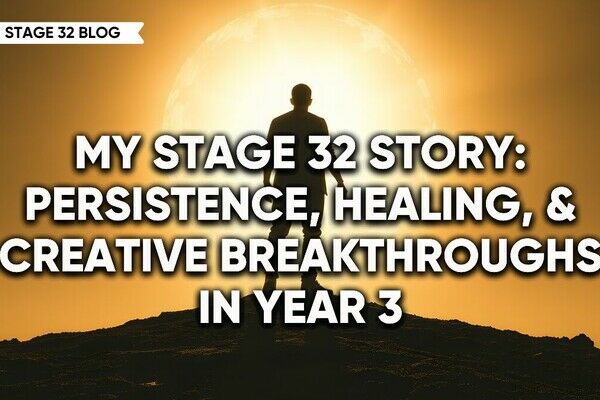
My Stage 32 Story: Persistence, Healing, & Creative Breakthroughs in Year 3

Stage 32 + DramaBox Join Forces to Launch World's First Vertical Drama Incubator

Insider Intel: 2025- Your Year of Breakthroughs (+ What's Coming in 2026)
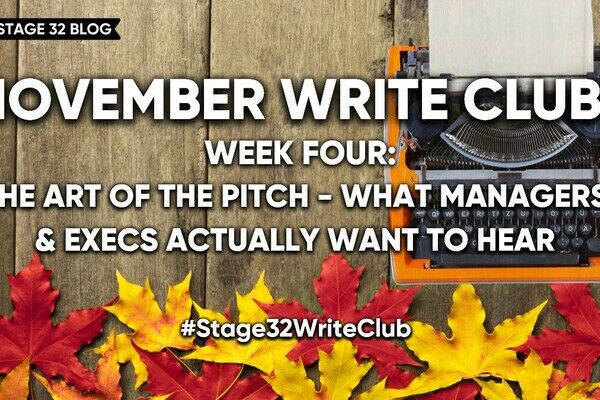
November Write Club Week 4: The Art of the Pitch- What Managers & Execs Actually Want to Hear
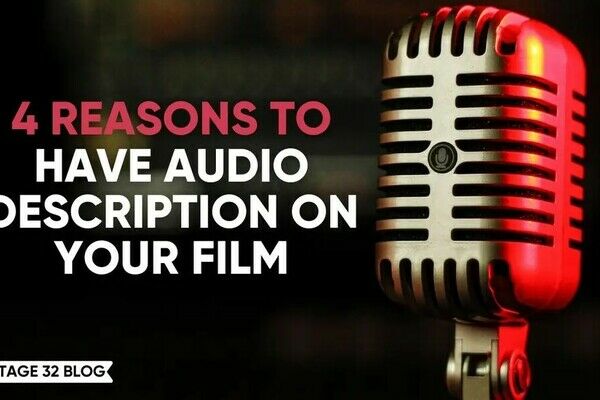
4 Reasons To Have Audio Description On Your Film

Insider Intel: 2026 Predictions




